|
| |
This week in: Peace & Security Publications |
IPSI | Africa | Americas | East Asia | Middle East | South Asia
|
|
|
|
| |
This week in Peace & Security Publications
|
|
|
|
| |
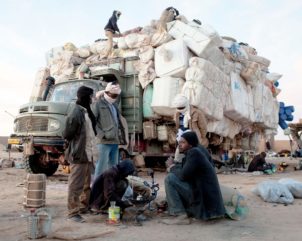
International Crisis Group: European policymakers increasingly are looking at the Fezzan, Libya’s vast and scarcely populated south west, as their frontier against sub-Saharan African migrants and refugees traveling the Central Mediterranean route to Europe. In 2016, over 160,000 took this route from Libya on makeshift boats; most had entered…
|
|
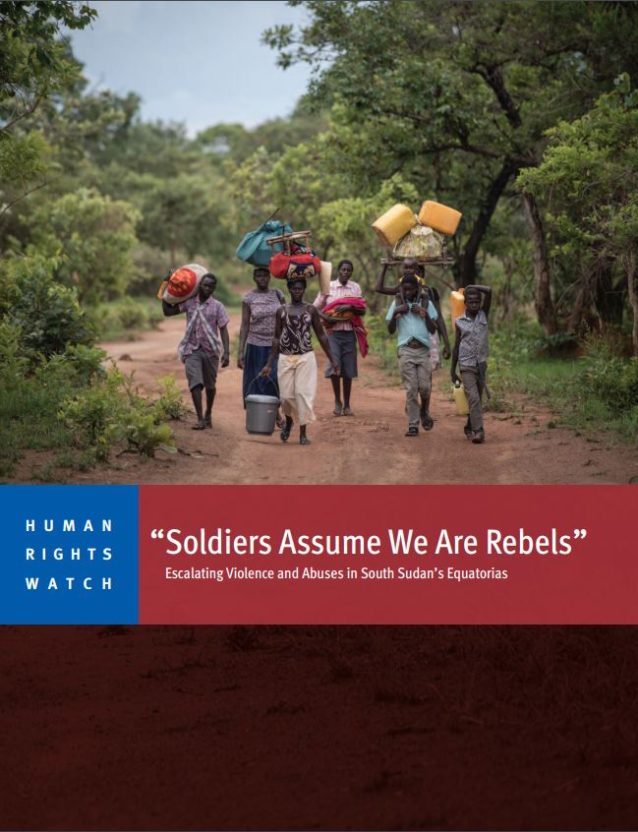
Human Rights Watch: More than three years after South Sudan’s conflict began in the capital Juba in December 2013, the war has spread to the Greater Equatoria region, in the southern part of the country, which had until recently been largely spared from the fighting. In the past year…
|
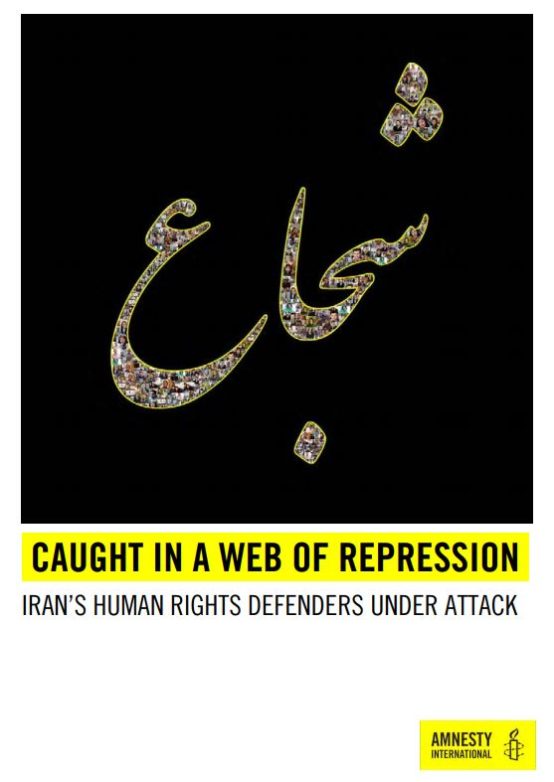
Amnesty International: Since 2013, scores of human rights defenders have been handed down harsh prison sentences in connection with their peaceful human rights activities. Many more have been subjected to surveillance, interrogations and
|
|
|
|
|
|
| |
Sarajevo Blogs!
Experience the Sarajevo Symposium on Post-Conflict Transitions through the eyes of the participants in their daily blog!
|
|
|
|
|
|
| |
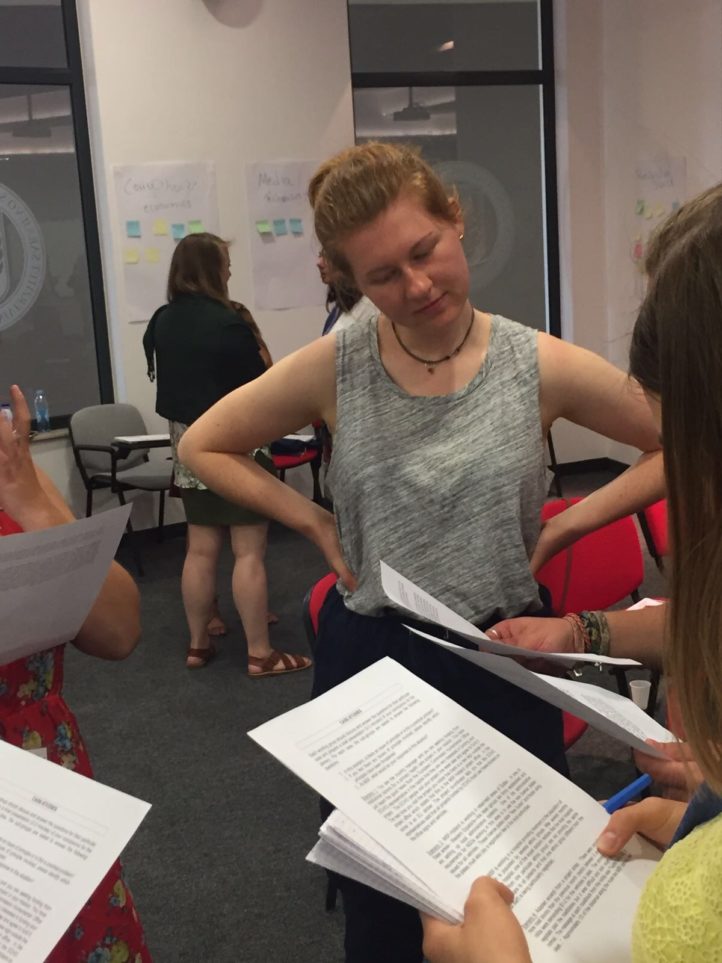
BLOG: Reimagining Bosnia and Herzegovina
Preface: Participants of the inaugural Sarajevo Symposium were asked to participate in a day-long capstone simulation. All participants were presented with a fictional scenario of Bosnia and Herzegovina, five years in the future, facing a growing youth movement and a European financial crisis. Aiming to address the concerns…
|
|
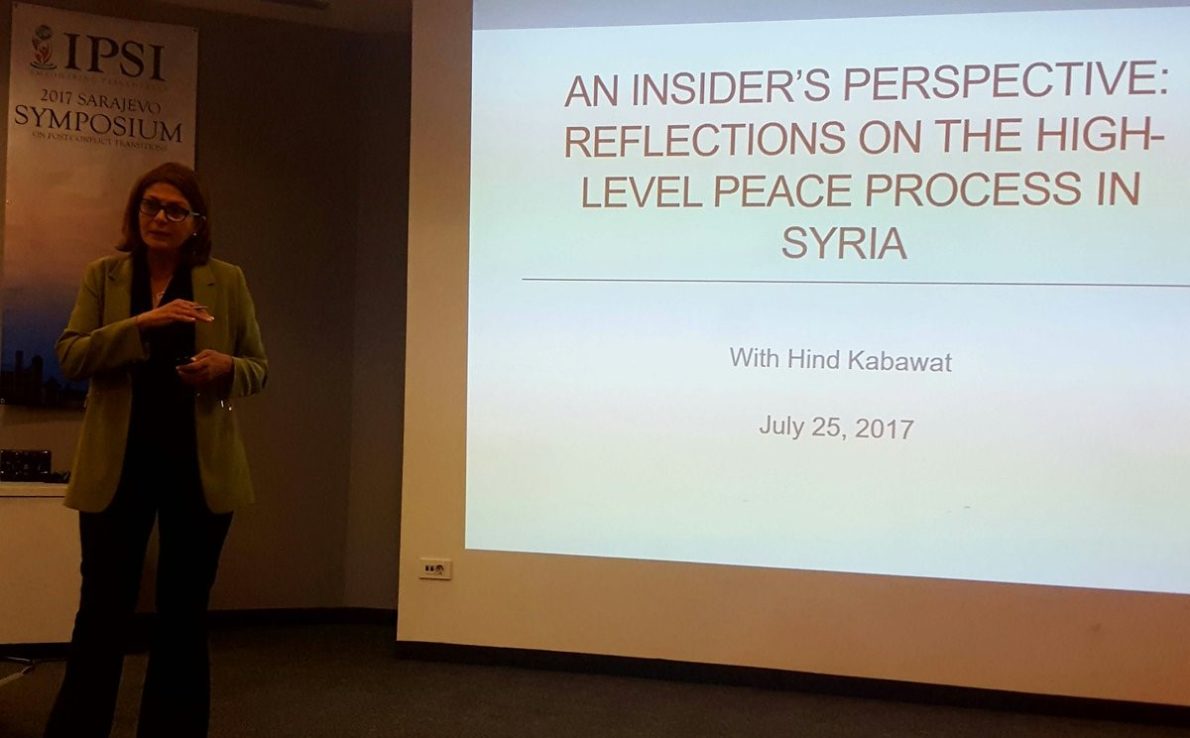
BLOG: The Value of Vulnerability in Negotiations
It is a rare skill to make people laugh and gasp with amusement when speaking about post conflict transition. Hind Kabawat, founder of the Syria Center for Dialogue, Peace and Reconciliation and current member of the High Negotiations Committee (HNC) at the Syrian peace talks in Geneva did just that. This week, the IPSI Sarajevo Symposium…
|
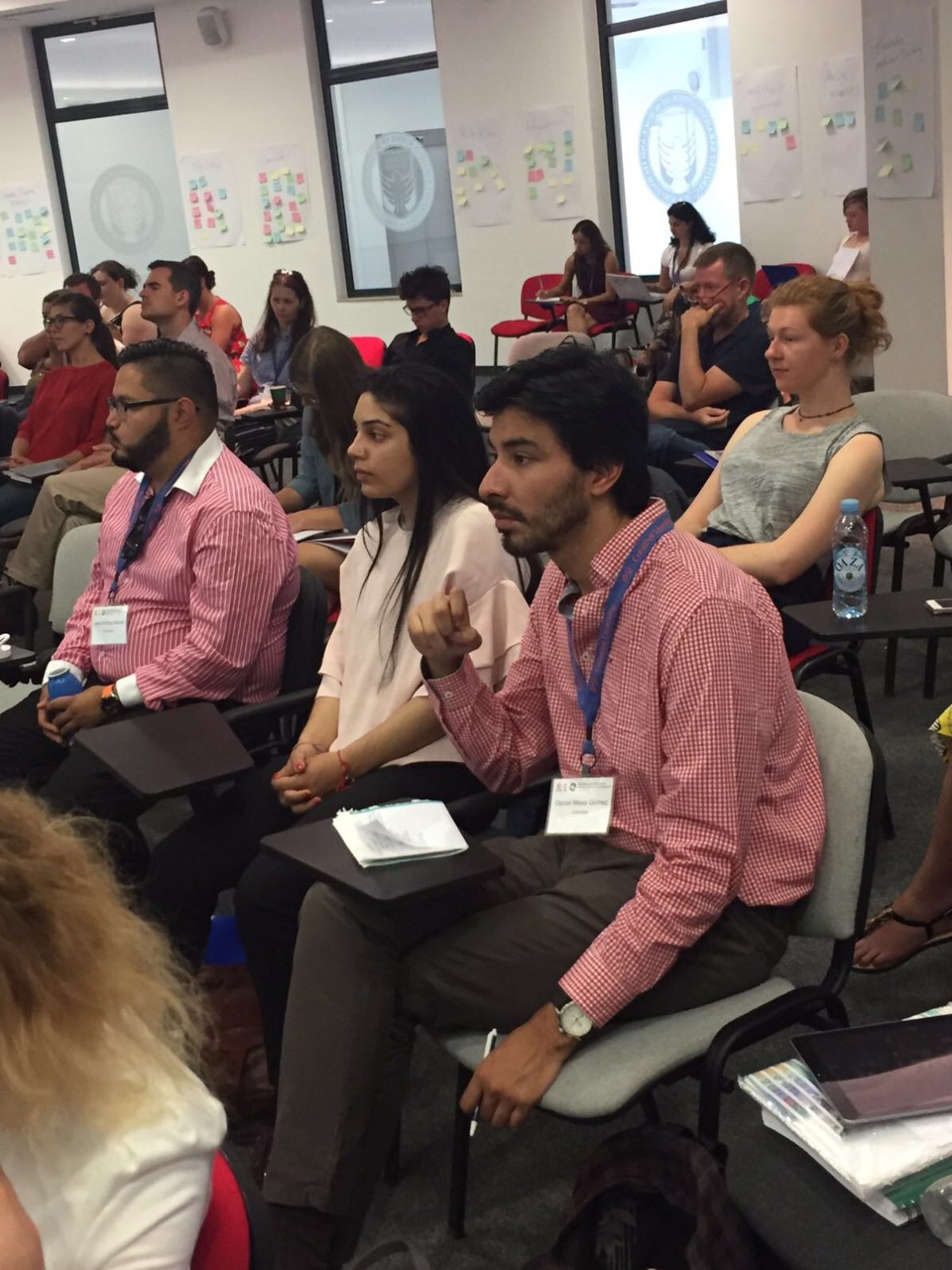
BLOG: Disarmament? Demobilization and Reintegration
The Disarmament, Demobilization and Reintegration (DDR) processes are strategies used in United Nations peacebuilding and peacekeeping operations, although they have begun to be used independently by states and other institutions involved in peace negotiations around of the world. To be implemented it is necessary that…
|
|
|
|
|
|
| |
This week in Sub-Saharan Africa
|
|
|
|
| |
DJIBOUTI: Chinese military base opens
On Tuesday, China opened its first overseas military base in Djibouti, purportedly as a logistics facility for peacekeeping and humanitarian missions in Yemen and Somalia. Comment: At the southern entrance to the Red Sea on the route to the Suez Canal, Djibouti is an important location for global commerce and energy; it transports 10 percent of the world’s trade. Djibouti currently hosts U.S., Japanese and French bases. Other Asian countries are concerned that this military base is China’s effort to expand its influence in the region, to extract Djibouti’s resources, and to rival the United States. (Reuters, HuffingtonPost, TRTWorld)
|
|
|
|
|
| |
GHANA: 400 security personnel deployed to stop illegal mining
On Wednesday, the Ghanaian government deployed a task force of 400 security personnel to the Eastern, Western, and Ashanti regions to fight illegal mining and protect the environment. The task force, Operation Vanguard, comes from the Ghana Armed Forces and the Ghana Police Service. Operation Vanguard will remain in these three affected areas until the degraded land and rivers are restored and a re-forestation program is underway. Comment: There are currently one million people involved in mining activities in the country, including foreigners. The activities of illegal miners (galamsey) are disrupting commercial operations and making the mines unsafe for legal workers. Many galamsey are former miners and farmers that have been displaced by the mining companies. They see mining as their only source of income. (GhanaNewsAgency, GhanaianTimes, Reuters, AllAfrica)
|
|
|
|
| |
SOMALIA: Al Shaabab kills at least 23 African Union troops
On Sunday, al Shabaab ambushed a convoy carrying troops from the African Union (AU) in the Lower Shebelle region. Twenty-three AU troops and one Somali soldier lost their lives according to a regional official. However, al Shabaab’s military operations spokesman, Abdiasis Abu Musab, reported 39 AU soldiers killed, including their commander. The troops were escorting supplies along the road connecting Mogadishu to Lower Shebelle. Comment: The al-Qaeda linked group, al Shabaab, wants to force the peacekeepers out of the country. It opposes the Western-backed government and want to impose its interpretation of Islam in Somalia. (HornObserver, Reuters, AlJazeera)
Researched/Written by Angelica Aimé Silfa
|
|
|
|
|
| |
This week in the Americas & Caribbean
|
|
|
|
| |
BRAZIL: Troops deploy in Rio de Janeiro amid increasing violence
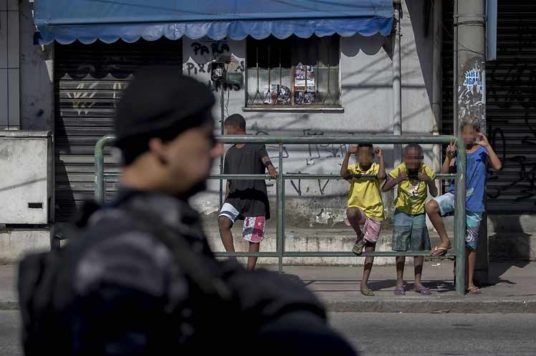
|
|
On Friday, 8,500 armed soldiers, along with hundreds from the Federal Road Police and the National Security Force, were deployed in the streets of Rio de Janeiro in response to a spike in violence. Defense Minister Raul Jungmann said these patrols aim at fighting organized crime. The operation is scheduled to run until the end of 2018. Comment: According to the Associated Press, three people on average per day were killed by stray bullets in Rio de Janeiro so far this year, and the number of shootouts between drug traffickers and police has increased significantly. Nearly 100 police officers were killed in state of Rio de Janeiro in 2017, and hundreds of police officers’ relatives protested last week, demanding more support from the authorities. Authorities have admitted in recent weeks that the city is “out of their control,” a situation which is exacerbated by Brazil’s current recession. (Folha, BBC News, The Associated Press)
|
|
|
|
|
| |
PARAGUAY: Paraguayan legislation votes to cancel campesino debts
On Wednesday, Paraguay’s Chamber of Representatives approved the Financial Rehabilitation bill to support campesinos overwhelmed by debts, a decision that was voted for by the Senate last week. Thousands of campesinos continue to flood the streets of Asunción, claiming that they will not move until the bill is ratified by President Horacio Cartes. The legislation, introduced by the progressive Guasu Front, will fund and restructure the debts of campesinos who own less than 30 hectares with subsidies of up to USD 10,000 per person. The campesinos’ representatives will meet with the Budget Ministry to deliver the list of those who benefit from the subsidies. Comment: Campesinos have been holding protests for three weeks in the capital, expressing their frustration towards consistent delays in negotiations on debt cancellation. 17,000 people are said to be affected by significant debt and the total debt is believed to be approximately USD 34 million. Land ownership has long formed the basis for bloody disputes in Paraguay. According to a 2008 agriculture census, 2.6 percent of landowners hold 85.5 percent of Paraguay’s lands, while 91.4 percent of campesinos hold only six percent. (Diario ABC, La Ultima Hora, Chron, TeleSur, Resumen Latino Americano)
|
|
|
|
|
| |
VENEZUELA: Election of Constituent Assembly accused of being fraudulent; Arrest of opposition leaders
| |
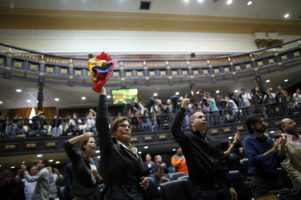
|
At least 10 people were reportedly killed in clashes between police and demonstrators during Sunday’s national election of a controversial Constituent Assembly. Although the official count of voters amounted to eight million (41 percent of the electorate), on Wednesday, the voting technology firm Smartmatic accused it of being off by at least one million voters. The government and the head of the National Electoral Council dismissed this claim. On Monday, two opposition leaders, Leopoldo López and Antonio Ledezma, who were on house arrest were seized from their homes in overnight raids. Amnesty International condemns the arrests as proof that the administration is desperate to silence criticism, citing warnings in previous weeks from President Maduro threatening to incarcerate opposition members. Comment: According to Reuters and Human Rights Watch, the Constituent Assembly is a step towards dictatorship because it has the potential to increase Maduro’s power by allowing him to dissolve the opposition-held congress, delay future elections, and rewrite electoral rules to prevent his party from losing power. More than 40 countries worldwide, along with Human Rights Watch, called it a “sham election,” although many, including the U.S., express their will to continue negotiations with current authorities. (El Nuevo Herald, Reuters 1, 2, The Association Press, Amnesty International, Human Rights Watch)
|
|
|
|
|
| |
REGIONAL: Latin America and Caribbean seek to include civilians on environmental protection issues
On Monday in Buenos Aires, Argentina, members of the Economic Commission for Latin America and the Caribbean (ECLAC) began their seventh meeting, scheduled to end on August 4. The representatives from 24 Latin American and Caribbean countries wish to set standards to prevent environmental damage and secure meaningful participation and access to justice for people who will be affected by economic projects. Key issues included civilians’ right to participate in and be informed on environmental issues, the removal of obstacles to environmental justice, and the effects of pollution. Comment: According to Human Rights Watch, the move toward a regional agreement on environmental rights was a response to a dramatic increase in environmental conflicts in the region. The ECLAC was expected to conclude negotiations by 2017, which puts pressure on the 7th summit to finalize negotiations without lowering standards. (News 4 Europe, ECLAC, Human Rights Watch)
Researched/Written by Nastasia Stipo
|
|
|
|
|
| |
This week in East Asia & Pacific
|
|
|
|
| |
AUSTRALIA: Two men charged with plotting terrorist attack to bring down plane
On Saturday, law enforcement apprehended four terrorist suspects with possible links to the self-proclaimed Islamic State (IS) during raids in Sydney after uncovering a plot to bring down a plane “using an improvised device.” Australian media reported that the device was “an explosive device (creating) poisonous gas.” Of the four men arrested, authorities currently have released one, held another in police custody, and charged the remaining two with conspiracy to commit a terrorist attack. Both men will appear in court on Friday morning and face life imprisonment if convicted. Comment: Australian authorities have been on high alert for IS-inspired homegrown terrorism ever since the deadly 2014 Lindt Cafe siege. Justice Minister Michael Keenan described the latest foiled terrorist attack as a “sophistical plot” and a “real threat.” Since 2014, authorities have prevented a total of 12 terrorist attacks, convicting 70 people on terrorism-related charges. (The Australian, Gulf News, Reuters, CNN)
|
|
|
|
|
| |
PHILIPPINES: UN reports the Philippines has highest rates of HIV/AIDS in East Asia-Pacific Region
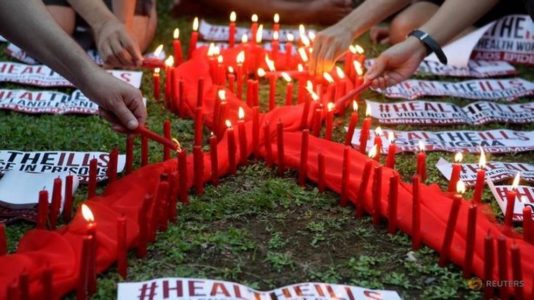
|
|
On Tuesday, the Philippine’s Health Ministry confirmed a 2017 UNAID report reporting the country as having the highest rates of HIV infection in the East Asia Pacific region. According to the report, the country’s HIV infection rate increased by 140 percent from 2010 to 2016, with 83 percent of new cases affecting men and transgender women between the ages of 15 and 24 who engaged in sexual relations with other men. In response, Filipino Health Secretary, Paulyn Jean Rosell-Ubial, declared that combating the HIV epidemic is among the government’s “top health priorities,” and discussed plans to increase funding for antiretroviral treatment while increasing the reach of community-based HIV screening and counseling services. Human Rights Watch, while applauding these efforts, called on the government to implement proven low-cost, low-tech prevention interventions and increase HIV transmission and prevention education. Comment: The current rate of HIV infection in the Philippines is the highest recorded since the first recorded outbreak in 1984. A 2015 study by UNAIDS in the Philippines showed a lack of knowledge concerning HIV transmission and prevention among vulnerable populations. (Human Rights Watch, The Philippine Star, Reuters)
|
|
|
|
|
| |
VIETNAM: Government arrests four activists as part of nation-wide crackdown
On Sunday, the Ministry of Public Security arrested four activists, charging them with “activities aimed at overthrowing the government” as part of a nationwide crackdown on citizens participating in subversive “anti-state” activities. The four arrested are dissidents Pham Van Troi, Nguyen Bac Truyen, writer Truing Minh Duc and Protestant pastor Nguyen Trung Ton. Comment: All four of the arrested activists were part of the online group Brotherhood for Democracy, an online group advocating for democracy in Vietnam. The group’s founder, lawyer Nguyen Van Dai, was convicted and arrested in 2015 for disseminating propaganda against the government. Two other activists were sentenced last week to roughly ten years in prison on similar charges. Human Rights Watch has reported that 2017 has been a “terrible year” for human rights in Vietnam. (Bangkok Post, Reuters, Deutsche Welle, Radio Free Asia)
Researched/Written by Laura Bisbee
|
|
|
|
|
| |
This week in Europe & Central Asia
|
|
|
|
| |
GERMANY: Government accuses Vietnam of kidnapping asylum seeker
On Wednesday, the Vietnamese intelligence attaché was ordered to leave Germany within 48 hours after a Vietnamese asylum seeker had been kidnapped and taken back to Vietnam on corruption charges. The asylum seeker, Trinh Xuan Thanh, is a former oil executive accused of causing about USD 150 million in losses at a Vietnamese state firm and is also the subject of an international arrest warrant. According to Vietnamese authorities, Thanh turned himself in on Monday in Vietnam after disappearing from Berlin in July; however, German media reported that armed men abducted Thanh from a public park. Comment: A German foreign ministry spokesperson warned that “the kidnapping of Vietnamese national Trinh Xuan Thanh on German soil is an unprecedented and scandalous violation of German and international law” that holds the potential to damage the relationship between Germany and Vietnam. (DW, Seattle Times, BBC, Reuters)
|
|
|
|
|
| |
MACEDONIA/BULGARIA: Landmark friendship agreement signed to end years of feuding
On Tuesday, Macedonian Prime Minister Zoran Zaev and Bulgarian Prime Minister Boyko Borissov co-signed the Treaty of Good Neighbourliness in Skopje. The friendship treaty is aimed at strengthening economic ties between the two countries, and includes renouncing territorial disputes, improving human rights, and reexamining the common history of Macedonia and Bulgaria. As part of the agreement, both countries pledge not to engage in hostile acts toward each other, and Bulgaria commits to supporting Macedonia’s bids to join both the EU and NATO. Comment: The treaty has been denounced by Macedonia’s conservative opposition party, but is being hailed as “an inspiration to the whole region” by the EU, and wholly supported by NATO and the U.S., amongst others. (Sofia Globe, AP, RFE/RL)
|
|
|
|
|
| |
RUSSIA: Russia continues to respond to new economic sanctions from U.S.
On Sunday, President Vladimir Putin said his move to reduce the number of U.S. diplomatic staff was an adequate response to the U.S. sanctions, which he called in an interview “an unprovoked and serious step toward worsening Russian-American relations.” On Wednesday, Russian authorities emptied out and secured a property formerly leased by the U.S. embassy diplomatic staff, barring any entry to the compound by former personnel. Also on Wednesday, Russian Prime Minister called the sanctions tantamount to a “full-scale trade war,” with a statement from the foreign ministry saying that countermeasures against the U.S. may be imposed. Comment: The EU chief executive said on Wednesday that they would also take countermeasures against the U.S. if the economic sanctions negatively affect any projects in Russia involving European companies. (VESTI, The Moscow Times, Reuters 1, 2, 3)
Researched/Written by Natalie A. Landau
|
|
|
|
|
| |
This week in the Middle East & North Africa
|
|
|
|
| |
JORDAN: Jordanian parliament repeals rape law
| |
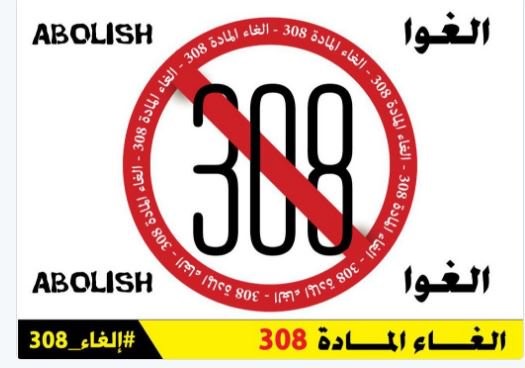
|
On Wednesday, Iranian Deputy Foreign Minister Abbas Araqchi stated that Iran will have a “definitive response” to any new U.S. sanctions to which President Rouhani added that Iran will reciprocate any sanctions imposed on Tehran by the U.S., according to state media. These statements came as new sanctions against Iran are being discussed by the Congress. Earlier in the week, President Trump warned Iran to adhere to the terms of a nuclear deal with world powers to avoid “big, big problems,” without specifying the type of problems Iran might face. The French foreign ministry said on Wednesday that the U.S. sanctions appeared to be illegal and against international law due to their extraterritorial reach. Comment: On Tuesday, the U.S. House of Representatives voted to impose new sanctions on Iran for supporting “terrorism,” Russia for possible meddling in the 2016 presidential elections, and North Korea for missile tests. (Aljazeera, Business Insider, Reuters 1, 2)
|
|
|
|
|
| |
QATAR: Qatar considers granting permanent residency to expats
Qatar is considering granting permanent residency visas for skilled foreign expats in an attempt to retain talents for the 2022 World Cup finals that will be hosted by Qatar. This came as part of the Qatar Development Strategy 2011-2016 released on Monday. The report released by the government stated that “A high-skilled and capable workforce is crucial for achieving a modern, diversified economy and for modernizing public sector institutions.” Residents now must renew their residency visas after a maximum of three years. Expats will benefit from the state’s welfare system, including education and health-care services, as well as property ownership, according to Qatar News Agency. Those eligible for permanent residency include children of Qatari women married to foreigners. Comment: This move would be the first in the gulf region. The Gulf Cooperation Council (GCC) countries are under pressure to protect their economies that rely on expatriates. Qatar is especially under pressure due to the Saudi-led blockade, now in it’s third month. (Raialyoum, The National, Bloomberg Politics)
|
|
|
|
|
| |
SAUDI ARABIA: Hundreds flee clashes in Awamiya
This week, hundreds of people reportedly fled Awamiya town in Al-Qatif governorate in the Eastern Province of Saudi Arabia where security government forces are fighting Shia militants. The clashes intensified this week as the result of a push since May to demolish the old quarter of Awamiya to prevent militants from using its narrow streets as a hideout. According to Reuters, local activists said Saudi forces have facilitated the departure of people fleeing the clashes that have killed at least seven people, including two police officers. Comment: Al-Qatif governorate has the largest concentration of Shia Muslims in Saudi Arabia, who have long complained about being marginalized by the Sunni-majority Saudi authorities. The UN criticized the Saudi attempt to tear down Awamiya’s 400-year-old al-Masora quarter, home to 2,000 – 3,000 people, saying it threatened historical and cultural heritage. (Aljazeera, BBC, Reuters)
Researched/Written by Atika Alkhallouf
|
|
|
|
|
| |
AFGHANISTAN: Protests arise after Herat mosque bombing
On Wednesday, 5,000 protesters chanted anti-Islamic State slogans in Herat, near the bombing site of a Shia mosque, known as the Jawadya mosque. Suicide Bombers attacked the Shia mosque Tuesday, killing at least 32 civilians and wounding 66. The attack was claimed by the self-proclaimed Islamic State on Wednesday. Amidst Wednesday’s funerals, mourners and protestors demanded better protection and justice for the victims; some protestors threatened to take revenge if they were not. Many protesters chanted slogans against the self-proclaimed Islamic State. Locals present during the bombing clashed with police, claiming a weak police response allowed two of the four attackers to escape. Comment: The UN Assistance Mission in Afghanistan (UNAMA) condemned the attack and conveyed their condolences. (Afghanistan Times, Hindustan Times, Dawn, Al Jazeera)
|
|
|
|
|
| |
INDIA: Anti-India protests in Indian-controlled Kashmir
| |
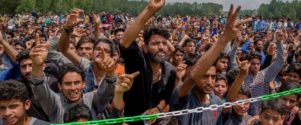
|
On Tuesday, hundreds of students took part in anti-India protests in Srinagar, Jammu and Kashmir after Indian forces killed two suspected militants and a protestor. Primarily students led the protests, chanting anti-India slogans and hurling rocks at Indian forces outside schools and colleges. Police used shotgun pellets and tear gas; dozens were injured in the clashes and one protester was fatally shot. During the protests, authorities closed educational institutions and blocked internet services through Wednesday. Comment: On Tuesday, Indian forces killed two suspected militants in Hakripora village in southern Kashmir. Abu Dujana, 26, was a Pakistani national suspected to be a top commander of the Lashkar-e-Taiba, and Arif Ahmad Dar, 17, was considered his associate. After their refusal to surrender, authorities evacuated the rest of Dujana’s wife’s home and police blew up the house, killing both suspected militants. Villagers said two civilians home were destroyed during the operation. (The Indian Express, Hindustan Times, Dawn, ABC, AP)
|
|
|
|
|
| |
PAKISTAN: Shahid Khaqan Abbasi sworn in as interim Prime Minister
On Monday, Pakistan’s parliament elected Shahid Khaqan Abbasi as interim Prime Minister after the former Prime Minister, Nawaz Sharif was disqualified from holding the position due to a corruption ruling from the Supreme Court. Although skeptical about Sharif’s removal from office, Abbasi lauded the reelection process as a progressive example of democracy after the restoration of order in four days. Comment: The Supreme Court disqualified Sharif as Prime Minister on Friday as a result of corruption charges discovered through the Panama Papers case. He was accused of not declaring a source of income, and his three children were connected to three offshore companies in registered in the British Virgin Islands. (Pak Tribune, Dawn 1,2,3, Al Jazeera)
Researched/Written by Rabia Uddin
|
|
|
|
|